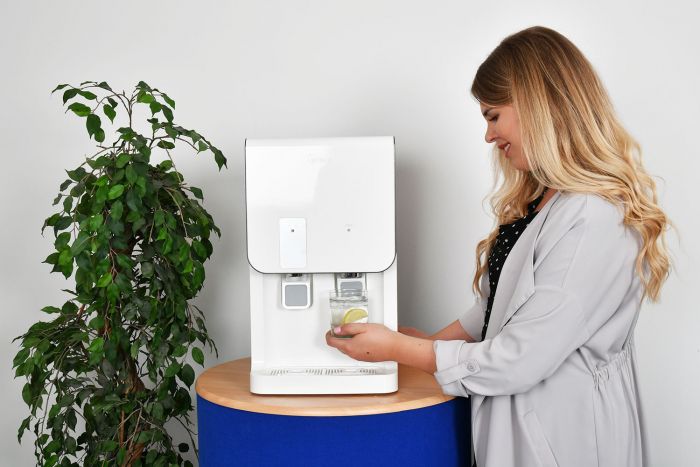What are the signs of dehydration?
This morning on the Virgin Radio Breakfast Show, Chris Evans talked about hydration and the importance of drinking lot of water and avoiding dehydration. So, as we enter another spell of warm weather, let’s remind ourselves of why drinking more water is crucial to health and wellbeing, whether working from home or back in the workplace.
Maintaining good health is key in today’s pandemic and taking good care of ourselves as we return to work and lockdown measures start to lift is on all our minds.
Why dehydration occurs
Dehydration can be dangerous and occurs when our body loses more fluid than we drink. The most common cause of water loss from the body is excessive sweating and urination but other factors such as illness and underlying conditions can contribute to this state. Most of us know that the suggested amount of water to drink is eight to 10 glasses per day and for those on the go, playing sport or exposed to high temperatures, they must consume even more.
When too much water is lost from the body, the organs, cells, and tissues fail to function as they should, which can lead to varying and dangerous complications. Dehydration can be mild and treated at home, whereas severe conditions need to be treated in a medical environment.
Some people are at a higher risk of developing dehydration than others, including workers exposed to excessive amounts of heat, individuals with chronic illnesses, sports people, young children, and of course the elderly.
Dehydration affects elderly and children
Older people are particularly vulnerable to dehydration, but this can be complicated by many medical conditions, and mental and physical frailty can further increase the risk. Recognising when an older person is not drinking enough and helping them to drink more is important.
Age UK states that thirst in older people may not be relied on as a sole indicator of dehydration and is more pronounced in Alzheimer’s and stroke patients. A recent article in the Times reviewed the useful memory aids now on the market that can encourage dementia sufferers to drink the next glass.

Chris Evans also pointed out that dehydration is very common in children. Dehydration affects concentration and brain performance and referred to a trial where children who drank water before a test clearly outperformed those who didn’t.
Symptoms of dehydration
Dehydration adversely affects mental performance and increases feelings of tiredness, including memory, attention, concentration and reaction time, reports the British Nutrition Foundation (BNF). Common affects as a result of dehydration include low blood pressure, weakness, dizziness and increased risk of falls.
Water also contributes to regular bowel function, optimal muscle performance, and clear, youthful-looking skin. Look out for signs of dehydration that include headaches, a dry mouth, lips and tongue; sunken eyes; dry skin; tiredness; confusion or disorientation; dizziness and low blood pressure.
The colour of urine can also be a useful guide; urine that is odourless and pale in colour generally indicates good hydration; dark coloured urine is a common indicator of dehydration.
So, monitoring fluid intake is a good method to ensuring good hydration. There are many free apps to help count your glasses and remind you to take the next drink. Another useful tip is to set your Alexa or smart watch to remind you to refill your reusable.
Hydration stations
Regarding our family, work colleagues and elderly relatives, it’s vital to increase our awareness of the importance of hydration during these challenging times. It can make a difference to health, well being and better quality of life.
As businesses prepare to re-open if Covid-19 has closed your premises, then make sure your team has access to chilled and filtered water which tastes so much better and does encourage us to keep topped up.
Water coolers and water dispensersin the home and office space are great in doing this. You may consider increasing the number of hydration stations in your building in order to support better social distancing. We have some great back to work deals and flexible payment schemesto help in these times.





